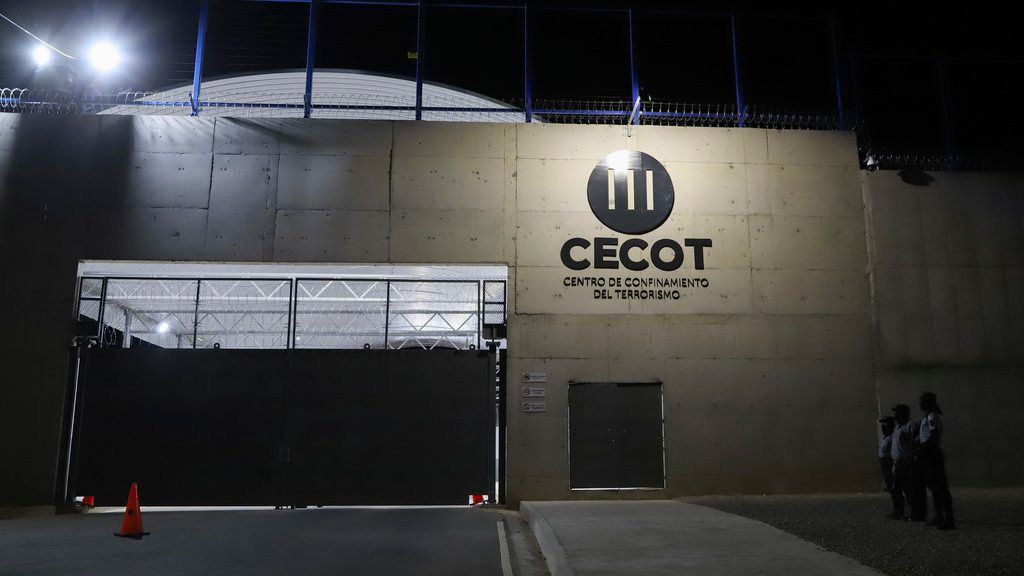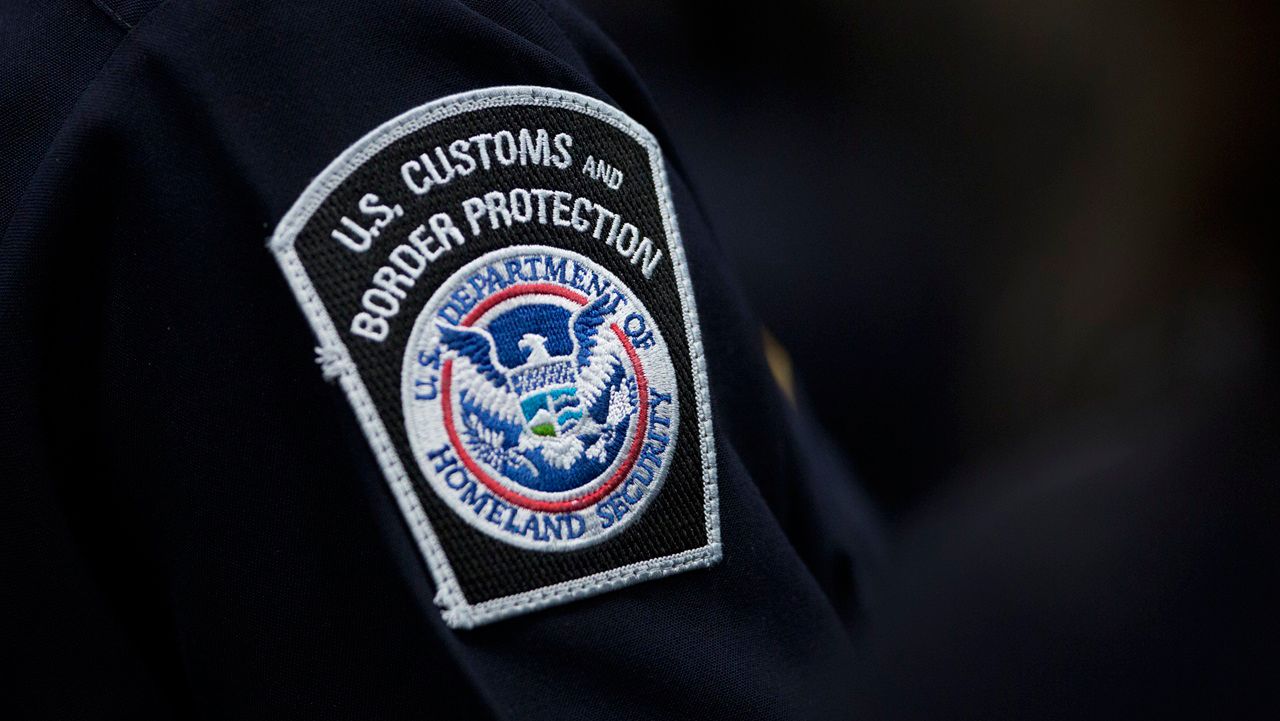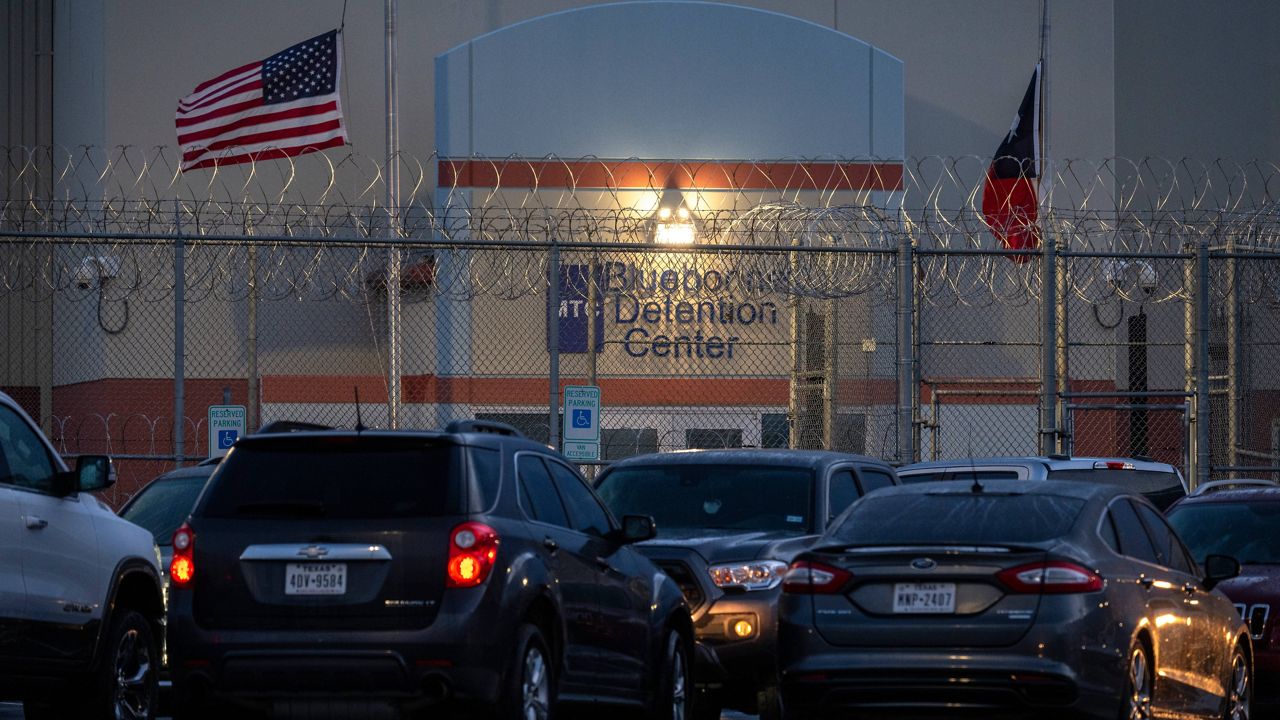TEXAS — Venezuelan citizens’ legal representatives state their clients face imminent deportation under the Alien Enemies Act after receiving under 24 hours’ notice to board buses.
A court filing by the American Civil Liberties Union (ACLU) claims dozens of men at the Bluebonnet Detention Facility in Anson, Texas, were allegedly wrongly labeled as Tren de Aragua gang members and given deportation orders lacking essential details about contesting deportation.
The lawsuit claims the government has ignored multiple requests from lawyers for information on the notices and removals.
The ACLU’s Friday emergency filing cautioned that immigration officials were labeling additional detained Venezuelan men as Tren de Aragua gang members, potentially subjecting them to President Trump’s use of the Alien Enemies Act (AEA) of 1798.
The act has only been invoked three previous times in U.S. history, most recently during World War II to hold Japanese-American civilians in internment camps. The Trump administration contended it gave them power to swiftly remove immigrants they identified as members of the gang, regardless of their immigration status.
Another notice of appeal has been submitted by the ACLU to the 5th Circuit Court of Appeals in an effort to block the deportation flights. A Department of Justice lawyer ordered Judge Boasberg to stop Friday night’s deportation flights.
The lawsuit seeks a temporary restraining order mandating 30 days’ bilingual (English and Spanish) notice to each Venezuelan national and their legal representatives before any deportation action.
Without immediate court intervention, the lawsuit contends that dozens or hundreds of class members face imminent transfer to CECOT, bypassing judicial review and violating due process and Supreme Court mandates.
A Supreme Court ruling last week allows President Trump to utilize the AEA for deporting suspected Venezuelan gang members.
The court, though in agreement with the Trump administration, regulated the deportation process, stressing the importance of judicial review and the requirement for detainees to be informed of their removal under the Act after the order’s effective date. The notice must be given in a timely and appropriate manner, allowing Habeas relief in the correct court before removal.
Also on Friday, a Massachusetts judge made permanent his temporary ban on the administration deporting immigrants who have exhausted their appeals to countries other than their home ones unless they are informed of their destination and given a chance to object if they’d face torture or death there.
Some countries, like Venezuela, do not accept deportations from the United States, which has led the Trump administration to strike agreements with other countries like Panama to house them. Venezuelans subject to Trump’s Alien Enemies Act have been sent to El Salvador and housed in its notorious main prison.
The lawsuit can be found below.








